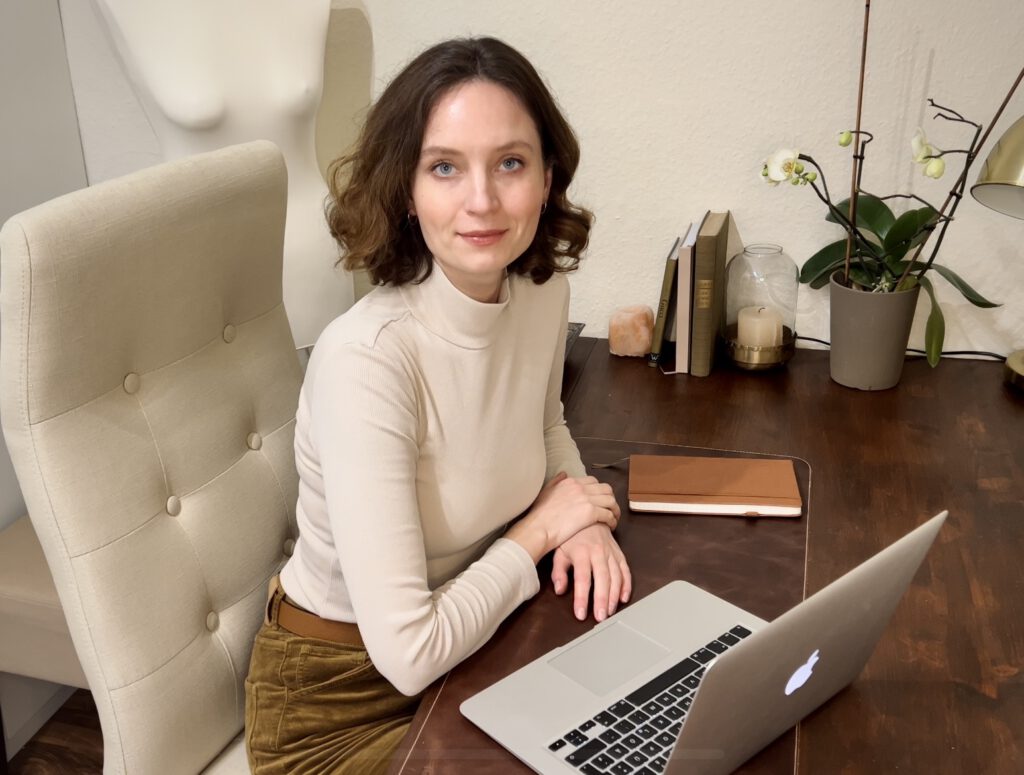Affiliate Disclosure
Some of the links on this page may be affiliate links. As an Amazon Associate, I earn from qualifying sales from these links. If you make a purchase or sign up for a membership through these links, I will receive a small commission. This will not cause any additional costs for you. This income helps us to run this website and especially the blog for you.
Introduction
The new year has just begun and the New Year’s resolutions are still fresh. It’s time to tackle them actively. In this article, you can find out which New Year’s resolutions I have made for myself for this year and why.
One of many resolutions: More energy through fasting
Unfortunately, spring will be a long time coming where I live. The weather fluctuates between cloudy and rainy, to perpetual wind with snowfall and sporadic, weak rays of sunshine that seem powerless trying to break through the cloud cover.
The winter months
In weeks when I’m mostly at home and spend a lot of time at my desk, I notice that I regularly have muscle pain and feel increasingly unmotivated and stressed.
Regeneration
Maybe you know this. You feel drained and tired, actually there are non-stop things to do, but you long for rest or an activity that lets you recharge your batteries. For me, however, these are necessarily linked to nice weather.
I love long walks or hiking in the sunshine. A day trip to a lake or the sea also works wonders for my mood and well-being. Afterwards I feel full of energy and inspiration again. Even a Saturday of strenuous gardening in good weather gives me new strength for the week.
After several months of grey, cold and wet weather, however, my strength is noticeably exhausted. I long for sunshine and 20 degrees Celsius. However, I will have to wait at least another two to three months for this. Especially over the winter months, I regularly ask myself the question: How can I incorporate some regeneration into my everyday life without having to get on a plane to change the climate zone? I have therefore found a few alternatives that help me to recharge my batteries. They inspire me and boost my motivation when the long winter months somehow don’t want to end, but also generally throughout the year.
New Year’s resolutions and old habits
The year has just begun, and New Year’s resolutions are still fresh. What we have let slip over the year, from a certain point in time, is now being tackled again energetically or at least the intention to do so is still present in most of us. For me, one of those resolutions is my diet. Which I unfortunately more or less neglect from time to time.
Which doesn’t really mean that I eat fast food, but that I eat too little fruit, for example, or eat too one-sidedly because I eat practically the same thing for days. Who doesn’t know this, you’re tired from work and don’t feel like preparing an elaborate meal, even if a salad is actually made quickly. Ordering the pizza and then just having to wait for it while watching Netflix is less time-consuming and so much more pleasant than “working” in the kitchen and, above all, tidying everything up afterwards. Healthy eating definitely requires a certain amount of discipline and is unfortunately a thing that somehow seems to take on a life of its own. The bad habits creep back in in no time if you’re not careful.
Fasting and caloric restriction
For several years I have been fasting regularly for certain periods of time. I used to fast for a week every quarter. When I was younger, it was easy for me. I was also able to follow my usual everyday life almost normally, watching others eat and drinking only water myself was no problem for me at all. Over the years, however, more and more tasks were added for me. And my everyday life became more and more stressful and exhausting from year to year.
Whereupon I had completely forgotten my usual four fasting weeks, which I had spread over the year. A few years ago, intermittent fasting suddenly became known and became a real trend. By now, intermittent fasting could probably be described as mainstream. I’ve always tried to leave at least about 12 hours between dinner and breakfast, but this year I’ve decided to extend the period to about 18-20 hours. Currently I eat between 16:00-17:00 last and the following day only around 11:00-12:00 again, or then drink my usual (breakfast) smoothie. Basically, it reduces my meals from three to two.
How we can (maybe) prolong our lives
A few years ago I read a book by a Japanese doctor. Unfortunately, I can’t think of the title or the name of the doctor right now. However, I can still remember the content very well.
The Japanese doctor in question was, among other things, a specialist in aging research and a recognized surgeon.
He was of the opinion that as little energy as possible should be wasted. Roughly speaking. He himself never did sports. He did have exercise, in the form of walking to work and being mainly on his feet during the day. But he was of the opinion that one should only do moderate exercise, since each person only has a certain number of heartbeats, when these are used up, one would die. Sounds absurd? Unfortunately, it is not. In fact, all mammals have about the same number of heartbeats before they die. For example, the hearts of most mammals beat about 1,000,000,000 times during their lifetime.
The mouse heart beats much faster than that of an elephant, it has reached this number of heartbeats after 2-3 years.
An elephant, on the other hand, has a lifespan of about 70 years. In theory, humans already exceed this supposedly predetermined number of heartbeats by twice as much in purely mathematical terms, but the arguments of the Japanese doctor cannot be completely dismissed.
Heart health
Our heart beats slower when we are relaxed and healthy.
When we are sick, the pulse can sometimes double, when we are stressed as well. Also, the HIITS, which became popular a few years ago, i.e. the “high-intensity interval training”, accelerate the pulse immensely.
So the Japanese doctor was of the opinion that one should generally do everything possible to keep one’s own pulse as slow as possible and thus save heartbeats, so to speak. I don’t think it can be good for heart health and fitness to keep your pulse at a very slow frequency permanently. For example, trained athletes often have a very low resting heart rate. However, this is only possible because their heart is so strong and trained that it can beat stronger than in untrained people and therefore slower than average. Someone who never does sports has a rather untrained, potential, weaker beating heart. I think the middle ground, as with everything, is probably the best. Regular, moderate exercise, without too much stress on the heart.
The effects of fasting on the body
But now back to fasting. The doctor in question generally used to eat only once a day.
He got up at 4:00 a.m. every day. From 6:00 a.m. onwards, I had a twelve-hour working day ahead of him. In this case, he sometimes had to stand in an operating room for hours at a time and operate on his patients. After his shift and a walk home, a balanced, wholesome dinner was his only meal of the day. It is an absolute mystery to me how you can endure this in the long run.
And at the same time, be able to operate on people in a concentrated and error-free manner. But this shows how well the body can adapt. However, this is also one of the serious differences between men and women. The male organism can cope better with such regularity on its own. Women are more subject to their cycle and should adapt to it rather than trying to maintain such extreme routines. In any case, what happens to the body when you eat so little food a day? The body slows down its pulse and blood pressure also decreases. The organs work more slowly because much less energy has to be used to digest the food. There are some other exciting processes happening, such as: that more sirtuins are activated.
Positive side effects of fasting cures
Sirtuins are a family of multifunctional enzymes from the group of histone deacetylases. The 7 different sirtuins (SIRT1-SIRT7) can switch genes on or off, repair DNA and even activate autophagy processes. In the latter, cells are tidied up and renewed, so to speak. Autophagy basically always takes place in the body, but is inhibited by frequent and, above all, high-calorie meals. Caloric restriction, on the other hand, boosts it.
According to various researches, it reaches its peak at about 70 hours of fasting, i.e. after about 3 days. Which is not without chance a special time in a fasting cure, since after about 3 days the first so-called “fasting crisis” begins. In some cases, you feel downright sick and can even feel muscle pain and headaches. Those who have never fasted before can sometimes even develop flu-like symptoms. Once this crisis is over, however, you feel better than ever. With intermittent fasting, the effects are nowhere near as intense, which is why it cannot directly achieve an equivalent effect as a one-week therapeutic fasting cure. But it certainly has a rejuvenating and healthy effect in the long run. Twin studies have been able to prove that 75-90% of aging depends on lifestyle and only 10-25% on genes. So, for the most part, we have it in our own hands to feel young and vital.
Preparation
It is best to go to the doctor beforehand and have a blood test carried out. Make sure you don’t have any already serious nutrient deficiencies. A B12 deficiency, for example, can cause irreversible damage to nerve tracts. Therefore, this should not be taken lightly. Based on your height and weight, as well as your age and your usual activities, you can then create a nutrition plan.
This should contain information about the minimum necessary amount of calories, as well as all important nutrients.
You create a nutritional profile, so to speak. If you know how to best meet your nutritional needs, even with fewer meals, you’re ready to go. In the case of a longer fasting cure, there is always a colon cleanse at the beginning. This also helps to alleviate the feeling of hunger, as the body can switch to an internal diet much faster in this way. In other words, it switches to a ketone metabolism instead of immediately asking for glucose from the outside, roughly speaking. This can be trained. In the long run, the cravings for something sweet, which are familiar to most people, will also decrease. If your body does not know and is not used to this, it can also lead to circulatory problems or headaches at the beginning.
It is important that you always drink enough fluids, or even increase them. On complete fasting days, it was not uncommon for me to drink 6 liters of water. On “normal” days, i.e. with interruptions of 18-20 hours, it is at least around 3 liters of liquid.
Disclaimer
This does not constitute nutritional advice. If you have never fasted before and want to try it, it is best to ask your doctor beforehand and get a check-up. Logically, with less food intake, nutrient density is all the more important. The risk of getting a nutrient deficiency is significantly increased. If you already have one or the other deficiency, it would be advisable to compensate for it before you introduce a fasting routine. Also, caloric restriction is absolutely not suitable for pregnancy or breastfeeding. Nutrient deficiencies can also go undetected and unnoticed for long periods of time, but can cause damage to an adolescent fetus for life. Fasting cures are also not suitable for children.
Conclusion
Already after a week with only two meals, I can at least say that I don’t feel worse, on the contrary. I feel more alert, a little more relaxed and my skin has definitely become better and finer. Maybe you have fasted before or have been doing intermittent fasting for a long time? What are your experiences with it? If you haven’t dared to fast yet, what are your concerns? Is the topic of fasting in general an “old hat” for you, or do you still find the topic exciting? Feel free to write me in the comments, I’m curious about your opinion.
I wish you a relaxing weekend.
All the best.
Christina
“It’s up to you whether you want to use the New Year as a brake or as an engine.”
Henry Ford
Share this post:

We’re excited
to share our news with you!
Would you like to receive information about our latest articles and our latest products directly in your mailbox?
Sign up for our newsletter!
We’d love to keep you in the loop.
About the author

Christina Ernst is founder and CEO of Linen & Quince. She is also a designer, author and real estate expert. She shares her experiences and knowledge not only on our Linen & Quince blog, but also on her personal blog, christinaernst.net , where she writes about financial knowledge, starting a business, real estate knowledge and personal development. She loves interior design, art, antiques, as well as elegant, sustainable and high-quality fashion.



